|
We came across a great article in Bloomberg Business week with a topic “Why Boulder is America’s Best Town for Startups“, the article talks about Boulder and how they have build their startup ecosystem and also what is a good role for government. We think this is a very timely topic to many cities around the world, so we wanted to also cover this topic here as well. There’s no denying the power of the Silicon Valley as the global leader when it comes to startups. That said, it really does not help so much the people outside the Valley and even less the cities around the world that are trying to build their own vibrant startup ecosystem and that’s why we see the case for Boulder Colorado, much more appealing for cities around the globe to take a note. The history of Silicon Valley goes all the way back to great gold rush, so it’s easy to understand, that the model to build a such ecosystem can not really be learned from the Valley alone. There have also been many posts about this topic, like this Article by Fred Wilson “Startup Ecosystems Take Time“, where he also points to some other articles. The main point about these discussions is about “how long does it take?” If Silicon Valley have been 50 years of making, Fred and others seem to agree that for any new ecosystem it will still take decades to build and get it work, but here’s where we disagree. It does not need to take that long and that’s good news for cities that are just starting to see the undeniable change force of the entrepreneurship and are in their early days of building a functional local startup ecosystem. We think this article in Bloomberg Business week explains a great example of how long (or short) in reality it can take to build a vibrant ecosystem, when it’s driven with passionate people and the whole city is behind it. As shown in Boulder it only took about 4-5 years and that’s less that what Fred and others are thinking. So what are the new factors that accelerate the process of building the local startup ecosystem?
Our favorite method to showcase the fast pace of online is a video by the Socialenomics author Erik Qualman, where he also describes the size of Facebook as: “if Facebook would be a country it would be the 3rd largest country in the world”. This says a lot, but at the same time if all Internet users would be a country it simply would be the largest country in the world, and there too a startup ecosystem is needed and that’s why Startup Commons is focused on Ecosystem Development. In that article, there’s also a great side note about what governments should do and this is a very important detail to take a note:
We strongly agree, this is crucial for any government and other public organizations to understand: the best thing they can do is to facilitate, but other than that let people shape it. In global level this is very much our own position as well, as it’s not about what we do, as it is about people coming together to start great things and to solve problems of all kinds. So we too only build tools to facilitate this, by taking our role to develop and serve the needs and activities for those using our platform. But we also want to help the local ecosystems to make it easier to tap in to global resources and that’s why we are building local platforms that are globally connected, because by combining the virtual an physical worlds and activities together, that will be the real winning combination for everyone. Are you a consultant or an entrepreneur?
- Learn more about Growth Academy Online Training & Certification Programs Download our startup booklet and watch our videos to learn more about our framework to help startups to grow without "reinventing the wheel" and without wasting lot of time trying to connect the dots. The framework is based on the startup development phases and aims to remove the highest universal risks on the startup journey. eco.sys.tem noun pronunciation /i.kəʊ sɪs.təm/ /-koʊ-/ n [C] All the living things in an area and the way they affect each other and the environment; An informal place without physical boundaries or structured organization to manage it or A place where everything has a meaning and where each function supports the overall function of the whole ecosystem. Much like our habitat, our home, the earth where nature goes by her course to ensure as people, we have air to breathe, water to drink, warmth and more. As entrepreneurial people, we too need this ecosystem or community that we can call home for the very reason that we can then work and provide to people outside this ecosystem. And when we need to, we can always come back home to our safety, take a break, share an idea, plan a next step, talk to a friend perhaps and then get back to work. Why do we need this? Largely because outside this trusted community or ‘our ecosystem’ things are different. People don’t always ‘get you’. Things don’t always play by similar rules. You can’t always bounce ideas off people and get feedback (not for free at least). People don’t even speak “startup language!” Outside this ecosystem things work in more general ways not taking into account the life of an entrepreneur and building a startup is very much different from what others are doing within the wider world. In the outside world, when your business venture fails, you are considered a failure. End of story! The startup ecosystem is different. So much so that even when you fail, you’re not considered a failure but an entrepreneur that just tried something that did not work. Perhaps the worst question you will have to encounter is “what did you learn from it?” It’s not that this community is more forgiving. It’s just more understanding because everyone there is working in a similar environment with a similar mindset and common goals. So where do you find these communities? Entrepreneurs tend to look for other entrepreneurs like themselves. Investors tend to look for entrepreneurs and other investors. Service providers that cater to startups also look for entrepreneurs and the way to find them is to ask from your fellow entrepreneurs or look for startup meetups etc. This is how communities are formed and ecosystems built. What we want to do in Startup Commons is to build one trusted community that is as close as your closest computer or smart-phone. An ecosystem or community you can always visit where ever you are and take with you where you go. What makes the ecosystem work and how do you participate? The first thing you should do is join in. Next, take some time to listen and get to know some of the people. Introducing yourself and maybe start asking some simple questions. Also offering your help to others is the currency to use. The more you look into helping others is a way you earn your position and to keep asking more from the experienced people within the community. In an ideal entrepreneurial community everyone is helping as much as they can and when they need help of others they can just ask. The balance between sharing/helping others to what you will get in return grows very naturally between people with different skills and resources under one ecosystem. Everyone has something to give and it’s naturally based on what is the easiest resource you can give. For some it’s time, others it’s knowledge and for some it’s simply… money. These things develop and change with each person depending on their current stage of their own life and their business. Founders at a later stage may turn Investors. Service providers may turn entrepreneurs and entrepreneurs with more settled businesses may turn advisors. So what makes the community to function is that everyone is trying to do as much for the community as they can. In return, they just keep getting more and more opportunities or information until it gets to the point they have so much to follow up on outside, that giving back to community finds it’s natural balance. When things change, all you have to do is go back to the community and start giving again and soon enough you can find yourself in a new venture. The dictionary says an ecosystem is “all the living things in an area and the way they affect each other and the environment”. For us, that’s the environment or area where we can grow as entrepreneurs. Startup Commons is working for that. We are working to scale entrepreneurship focusing on entrepreneurship education and sharing our expertise and trainings. Startup Commons has released entire Growth Academy innovation entrepreneurship curriculum training materials with more than 700+ slides, along with supporting booklets for free co-development and use.
All is released under Creative Commons licensing and in editable format. The curriculum is built, designed and refined over the years to increase the volume of entrepreneurship and likelihood of startup success by focusing on removing or reducing the biggest “universal risks” and to educate about optimal methods and structures. To give more support during learning process and to train future coaches, we created a serie of training webinars and certification programs. Imagine two entrepreneurs both equally talented. With the same brilliant idea but just in two different places in the world starting up their venture. One in a Utopia for innovative startups much like the Silicon Valley and one in a place where innovative startups are not often recognized or even understood. Every time you attend one of the several technology Barcamps or startup events organized across the globe, you can’t help but realize just how many fantastic, innovative ideas people have to develop great new technologies and web products. Every one of these events and gatherings reveals new ideas, beta versions of applications and new technologies that are game-changing. Yet, how often do so many of these great start up ideas (especially in developing countries) disappear into thin air just months after they look so promising? Across developing countries which clearly have immense untapped talent the environment to nurture these startups, secure early stage funding and get the inputs required at that stage are lacking. The ideas are plenty. The potential to execute them is abundant. The support framework to help support the idea while it tries to manifest itself into a business…is a missing piece. It may exist but it’s not nearly as abundant as the talent or ideas. In these markets the entrepreneurs seem willing to take a leap but as they do, often find themselves asking “where are the angels???” Having seen a number of startups with great ideas come and go you notice there have to be some inequalities which may influence how startup-friendly or not a place is. Also having spoken with a number of budding entrepreneurs (often first time) here is what one would find if they dug into the causes of their early disappearing acts: 1) Lack of Early Stage VCs & Angel Investors – While there can be well established capital markets in these places most of these are geared towards the large investments segment and not towards early stage startups. As a result too many entrepreneurs are vying for the attention of a handful of investors which means many great ideas end without a chance to grow. (The opposite can be seen in areas which have a lot of angel investors and smaller numbers of entrepreneurs where ideas not as robust can also pass through) 2) Inexperience In Innovative Technologies Investments – In developing places investment activities are more cautious and investments into innovative or new technologies is often considered risky. Investors tend to keep away from this space and those who don’t look for higher returns as a pre-condition for financing. It’s not angel funding or seed funding but loans rather. 3) Lack of Passion & Focus – Entrepreneurs may “give up” too easily without the approval stamp of investors and this could often be a case of ‘lack of passion and focus’. Instead of focusing on results from the original plan they can be swayed to come up with new ideas trying to become attractive to investors by any means except for showing results and building value. 4) Difficulty Building A Strong Team – While talent in places can be plenty it doesn’t mean that talent will be accessible for free or even for equity. While entrepreneurs for whom funding is a challenge, securing the talent needed to build his / her core team would be an even bigger challenge as it’s hard to find the right people who have a similar belief in the idea and an entrepreneurial mindset willing to work for equity or future reward. Startup Commons has created a Shareholders' Agreement and Team Building Workshop that could be useful in this case. 5) Lack Of Guidance & Mentors – Having good guidance is critical especially for relatively less experienced entrepreneurs and no matter how great the idea is, making the right choices and sharpening the business as one goes along is important. It’s nice to have the right set of people to bounce ideas and questions off. It’s not always easy in a number of places. Without a nurturing environment where the business can get regular inputs in the form or knowledge and advice mistakes which have already been made by others in the past can be repeated. In this case, a good entrepreneurship education and training is really important. 6) Challenging Eco-system – You can’t grow grapes in the Antarctic. The conditions are just not right. Similarly, startups can often thrive in places where everything and everyone around them creates the right eco-system for them to grow. Investors who understand them, people who understand them, potential talent that understands them and knows what they are doing and how they work. It’s almost as if everyone speaks your language no matter where you are. In an environment where the needs of startups are not understood, the job of building one and growing just becomes that much harder. Two similar sets of entrepreneurs in two different places around world both with an equally great idea may not have the same journey. One could be a smooth ride and the other could be like driving down Mount Kilimanjaro on a horse-cart loaded with tin cans…going backwards! Even if the Silicon Valley can't be replicated, wouldn’t it be great if an ecosystem had the ideal conditions for growth so that every good idea has an equal chance? We are building it together right here. At Startup Commons we focus on create more equal opportunities for entrepreneurs! Startup Commons has released entire Growth Academy innovation entrepreneurship curriculum training materials with more than 700+ slides, along with supporting booklets for free co-development and use.
All is released under Creative Commons licensing and in editable format. The curriculum is built, designed and refined over the years to increase the volume of entrepreneurship and likelihood of startup success by focusing on removing or reducing the biggest “universal risks” and to educate about optimal methods and structures. To give more support during learning process and to train future coaches, we created a serie of training webinars and certification programs. The H2020 2018-2020 work programme recently launched a new call with application deadline 28 March 2019, aimed to:
A total budget of EUR 10 million will be distributed among ecosystems organizations who want to establish consortiums of 4-5 startups ecosystems across Europe per project, to apply together for a project for connecting activities between consortium ecosystems, with aim to building an ever closer Union of startups ecosystems. EU Commission is specially interested in organisations aiming at connecting local tech startup ecosystems supporting cross-border activities between EU ecosystems, where about half of each consortium should be located in less developed ecosystems and half from top 20 of the more developed ecosystems (on scale up index ranking). A consortium can also include international consortium member outside EU as long as it’s aligned with targets of the call to support European startups/scaleups to soft land and get access to new markets (not the other way around ie. startups to access EU). More about international aspect, see towards the end of this message. Each consortium project should look into developing:
Also additional focus will be placed on:
See also additional details from information and networking workshop organized by EC for potential applicants to the call where you will find more additional details and the official presentations related to it. The deadline for the call is 28 March 2019. Evaluation of applications Three main evaluation criteria are; excellence in form of being relevant to the topic of the call, impact, quality and efficiency of the implementation, including self sustainability (how things developed in the project can continued without support). See further evaluation criteria in more detail here. Developing a plan for a consortium project based on call details? Building one single digital entry point for your ecosystem, actively connecting between ecosystems and to Startup Europe in a self sustainable manner, is not as simple as manually collecting information from different sources and put it on a map or some application. Key points here are “actively” (should not be only manual) and “self sustainable manner” (how things developed in the project can continued without support). The more there is manual work involved the harder it is to make connections active and self sustaining. Also as one of the new key focuses on this call is deep tech, also solutions developed and build as part of the project itself, should naturally look into utilizing deep tech approaches. Combining, these mean how to get the information (data) flow more automatically and how to make that data into high quality. If these are considered, then there will also be opportunities towards more deep tech solutions to develop later, like use of AI. What could be a focus for a project to apply funding to? Permanently fix the ecosystem fragmentation problem and begin the digital transformation journey within and between ecosystems taking part in your consortium. In startup ecosystems, founders looking for cofounders, talent looking for ideas and support, investors looking to invest, companies looking for partners, lenders looking to provide working capital, corporates looking new innovations to existing problems and opportunities for their customers and markets. The list goes on and on. Everyone and anyone trying to find what they are looking for from startup ecosystems suffer from fragmented, limited and outdated information. So easy access and use of accurate key information (data) about the things they are looking to understand and about people and companies they are looking to connect and do business with is a key for everyone. As long as any given startup ecosystem develops and grows, it has to scale its own programs, services, activities, processes, projects, people and resources in general. This rapid pace of change is compelling to provide a more transparent vision of the ongoing developing and evolving ecosystem in order to communicate in effective way to all users in the ecosystem relevant information such as what is going on in the startup ecosystem, who are doing what and why, where and when are things happening or how different parties can "get in on it all". Additionally, there’s an important speed gap between and disconnectivity with the showcased information and ecosystem performance metrics (KPI’s) with the real startup ecosystem activity that generally becomes into outdated and inaccurate information for all user roles within the startup ecosystem, generating a lot of frustration to users and inefficiency at ecosystem level. When we have been evaluating the core problem, it’s not that the information would not exist or about missing or wrong applications per se, it’s often about manual and/or non sustainable strategy and solution that is applied in projects supporting an ecosystem to increase connectedness. We have validated this problem several times globally. Instead a solution needs to focus on an application connectivity framework and not just a manually populated portal approach, with an open standard ecosystem level data model and related data sharing practices. To establish a digital backbone to enable application level connectivity that can be built step by step and API connections to share data more automatically can be added one by one with smart architecture approach. This needs to be done in a way where during and after setup is in place and any individual connection created, each connected application and data owner can separately decide from their connectivity settings in the system, what data they want to share and under what terms also taking into account GDPR compliance for users to be able to make their data portable between applications without having dependency in any single application. In such setup, a startup ecosystem one stop shop can then be added “on top” to showcase all real-time information flowing within the system about ecosystem people, startups, events, support services, development projects and beyond. Also this type of setup enable software developers or managers of any application to enable connectivity from and to their application to all other existing ecosystem applications via single API gateway connection (instead of multiple different connections directly between multiple applications), and also to build totally new ecosystem applications based on data and connections within the system. If you need inspiration, please check out Startup Commons ecosystemOS model which is especially designed based on these global learnings. Making it self sustainable Another global key learning is that too many projects created are not designed to become sustainable beyond their initial project life. This leads to a lot of wasted efforts, resources and money. As well as to situations that many projects seem to be repeated, set up by different actors trying to fix a same problem, where often times repeating same things, facing same challenges and gaining same learnings. Also often unfortunately ending with same or similar outcome. Often time these types of unfortunate things are only visible for those who have been working with ecosystem developments for long enough time. Instead we believe there should concrete and more permanent results achieved, that any next new project could also leverage to develop further, instead of repeating projects with limited sustained benefits. As such, a key part of deploying such solution is that it needs to be designed to be sustainable, operated by and organization that is operating under local economic development policy makers and ecosystems key actors strong support and/or mandate (e.g. regional and municipal development agencies), corporations driving dedicated business vertical ecosystems internationally for innovation and key public & private startup support services that operate startup and entrepreneurship ecosystems and offer services to startups, investors, and other stakeholders. If dedicated ecosystem operator who's focused on ecosystem connectivity, systematic long term development and neutral orchestration does not currently exist in your ecosystem, this project is very well aligned for establishing such function, where learnings between consortium ecosystems can be accelerated during this project and related costs can be shared, not only between the EU funding but also between consortium members. As the whole core target is to build active connectivity and as such that also means building digital standards to be able to connect within and between ecosystems. Call to Action! At Startup Commons we strongly believe on research concluding ecosystem connectivity being the most important factor contributing for growth and since 2014 we have been part of projects trying to solve such challenges with digital solutions with 25+ ecosystems. Step by step building these learnings to build an unified network of ecosystems with a shared data platform and standards. Therefore, we couldn't be more pleased to see the European Commission focusing on this and launching this call to fund active connectivity solutions between ecosystems, with key focus on self sustainability and involving deep tech and digital innovation hubs included. Our hope is that this will encourage and contribute the creation of ecosystem operators role with a systematic step by step and data-driven development approach but with a long term sustainability and GDPR regulation in mind, to make services more automated and startups more visible, accessible and easy to reach international markets through digital means. For this to happen, ecosystem builders have to act now to get a deep understanding about what EU is requiring and to start establish consortiums and projects for plans that can be funded. Building a consortium, project plan and application For exploring different solutions and identifying potential partners Startup Commons want to support the efforts of any ecosystem wanting to establish an consortium and/or for existing consortium to find suitable ecosystem partners. You can join and announce your interest via our global startup ecosystem developers group on facebook, send us a message or simply email us. We will be more than happy to organise a video call session with you to explore and plan next steps towards building your own startup ecosystem one-stop shop to enable connectivity within the ecosystem and to support cross-border activities with other ecosystems. Other sources for you to look into:
In addition, those who seek our support, we will support in developing a project and application towards the call itself. As well as naturally communicate about the progress and learnings of all consortium projects we are involved with, to our global audience and networks. International Cooperation Guidelines Notes from the video about call presentation (in about 6 min: 40 sec)
See also:
Are you a consultant or an entrepreneur?
- Learn more about Growth Academy Online Training & Certification Programs Download our startup booklet and watch our videos to learn more about our framework to help startups to grow without "reinventing the wheel" and without wasting lot of time trying to connect the dots. The framework is based on the startup development phases and aims to remove the highest universal risks on the startup journey. Building a successful startup from an idea to successful launch and beyond is a mysterious process for many. There is so much information out there and it can be very difficult to obtain what is the right information for you. First, it’s important to understand that depending on the type of company/business the process can be very different. Also we have intentionally left products, customers and other business related parts out of this process outline, to be able to focus on the other aspects of startup development. When it’s risky to see if the idea will gain traction and momentum, the only logical thing to do from a risk funder’s point of view is to minimize all the other related risks involved, making sure that the idea will have the best possible chance of success. This usually requires ensuring the team behind it is great, the timing for the idea is right, competition is manageable, and the most important item, “protecting the idea,” would be possible. However, the last one is becoming very difficult in today’s fast changing world and also less meaningful if the business can quickly gain critical mass (like a user base). It is also more and more difficult to patent and protect ideas and components in our “open source world.” So based on these assumptions, we have outlined the process of building a startup that would have an optimum chance of success from the funding and growth point of view. This process could be over simplified and there are many other factors as well. But it’s important for us to explain the main process: 1) The first risk to avoid is to be too dependent on one entrepreneur where one would have such ownership that he or she alone could make all decisions. So the core structure / ownership will need to be built, so that also looking from a funders point of view, there is more than one committed entrepreneur. So at least a core team of two or three is advised (since a 50/50 split can be problematic as well). More than three depends on the business model, roles, ownership %, etc. 2) Other team members. The next step is getting various other contacts committed to support and offer expertise and funding when needed, without too much effort. These people can typically be ex-colleagues, business contacts and other close contacts that you have built. They are the type of contacts that you know and they know you. So real trust is based on those relationships 3) Next you will need an ecosystem: outside experts that are not in your personal and inner circle: They are the ones bringing in the “outsiders viewpoint” and the contacts that would normally be out of your reach without a bigger effort. You must be able to convince enough of these types of people and get them involved with your start-up as well.
4) When you have shown traction with external experts, and they are committed to help you by sharing their contacts and expertise and recommending you to others, your startup has reached a level where you are starting to look more appealing to funders. Of course, this is only looking at your startup structure and people involved with it. The value of the idea and the quality of your product must be competitive as well. In Startup Commons, our focus is to scale entrepreneurship and innovation by empowering ecosystem development with global knowledge and tools for data-driven development. This because growth and success of the ecosystem is dependent on how well support services are designed and implemented. We wanted to do this for “weekend reading”, as weekends are good time to relax and enjoy some longer posts and do some thinking. If you watch all the videos linked to this post you can easily spend close to an hour with these, so we made this post so that it can be easily enjoyed even via your iPhone while laying on the couch. Are entrepreneurs born or made? Every now and then, there are talks going on about “are entrepreneurs born or made?”. We are not sure if there is a real answer to that or not, but what’s pretty clear regardless, is that to become a successful entrepreneur, there are many different things that can help you to become one. Few key points:
We think that entrepreneurs are born with an entrepreneurial mindset, behavior and thinking, just like having some other personality features that one may have. However, this does not mean that all these people with entrepreneurial mindset will become entrepreneurs, or that someone without this mindset would not become one. It may well be that we all have these entrepreneurial minds, but some have stronger minds than others. This may well be the difference between an entrepreneur and a great entrepreneur. Regardless of how it is, there is a path to becoming a great entrepreneur, some people can follow it, while some can’t and some only go half way. In every entrepreneur’s mind, at some point, it’s clear and you realize that you are an entrepreneur. This path – to become an entrepreneur – is why I wanted to write this post. While we were thinking on how to do this post and thinking of some analogies to explain some of the key points, we started to think clips from the movie “Matrix”. Our plan was to only use few clips from Matrix and then some other stuff, but as we started to search for suitable clips in YouTube, we realized that we could build the whole post around clips taken from the Matrix. The path of becoming an entrepreneur While you’re watching the clips below, try to replace the roles in the movie with those occurring in the entrepreneurial and startup world, like mentors, service providers (experts), business angels, team members, corporations, venture capitalist etc. and enjoy! Learn to question the functions of the existing models At some point you start become aware that you may indeed be an entrepreneur. Sometimes you realize that yourself and sometimes someone else will see it in you before you do, and starts to talk to you about it. – When you feel yourself questioning many things around you – you need to go and meet other people that are entrepreneurs. People with ideas & passion and those that have done it before. Learning to question the existing models will lead to finding “new and better ways of doing things” and that’s the most natural path to come up with a great idea for a startup. The earlier you can see a “new way”, the more time you have for safe bootstrapping. When you are too early, the market is not ready and when the “new way” is already obvious to everyone, it can be too late for great entrepreneur. The right time to build a business around “the new way” is difficult to know, but at the point when enough smart people (that can and are willing to help you) are seeing the “new way”, it’s as close to right time as it can be. Understand the big picture To be able to really start learning, first you will need to understand the bigger picture. Whatever you are doing and however well you think you know the things you are planning to do, you need to become aware of other things around you that will have effect on the outcome of what you are planning to do – things that will help or bring obstacles on your way. Having been “in the business” where you want to bring the change is very important. This means having been studying, working etc. enough within the area you are about to make a change in. To make this learning process faster, it’s crucial to follow, meet and talk to people that already understand it on the same or a deeper level that you will need to as well. It’s also important to understand, that while it’s important of having lived in the system, the system itself really can’t teach the things you will need to learn about being an entrepreneur. Learn the related basic skills in other industries to be able to battle within your own industry Besides the skills that you need for your own industry, you will also need to learn other important skills that are essential for your success. In our context, this means learning to listen people in volumes and to present your business and goals in simplistic ways. Or to learn how to acquire needed funding to make your business a reality. Simply put, you need to learn to convince other people to give you their money for what you have to offer. From this clip it’s easy to understand how also smaller basic roles like “the operator” are crucial for the future success. In the startup world this means relevant service providers or experts, that can help, teach and give you the insight in some tricky issues or simply take care of some of the related important segments of your business (like legals, accounting, etc.), stuff you need to understand but that you really should not be doing/focusing yourself, if you are in a greater mission. Here’s a related post on how can you work with “the operators” for your startup. Train your skills When you have real life experience, you have learned from others by reading and listening their theories, it’s time to start practicing what you have learned. While you continue to work with your startup, participate to your local events to pitch your startup and see others pitch theirs. This is also a g00d way to meet potential new team members to build you core team. Have a healthy attitude with failure Everyone fails on something at some point. When we were kids we did it all the time and that’s how we learned. Obviously the goal is not to fail, but the fact is that you are able to learn faster when you do. If you are racing F1, you don’t know how fast you can take the corners, until you spin out on the track. After you have done it, you know how far you can push the car and still stay on track. Same goes for everything else. Just make sure you are aware what you are doing and what level of risk you are taking. If you crash your car, the race is over and if you pass out and you don’t know what just happened, it’s hard to learn from it. Also make sure to communicate and agree on the level of risk you are about to take with everyone involved, or you will start to lose the people around you that are willing to help you next time. It also helps if they have experienced similar failures in the past themselves. Pay attention to details along the way As you move forward, remember to pay attention to those small details and indicators along the way that help to remind you of what you know. These will help you to keep your focus on things that take you forward. In business these can be metrics. When you combine metrics to your gut feeling, your gut feeling will start to develop for the better. Entrepreneur without a team – is not a great entrepreneur When you are on your way to becoming true entrepreneur, a big part to understand is that if you are aiming to go solo, your chances of making it big are much, much slimmer than with having a great team with you. Your team is everything, when building up your startup and product. And when things go really bad you must be able to count on them. Simply, if you are thinking of doing it alone other people don’t really care so much of what you are doing and even if you succeed, there’s no others to share the excitement with you (people that really understand it). Take care of your team What makes a great team – is the fact that they care for each other. If someone is in trouble, you can count on your team to come for the rescue. The relationships that are build in any startup team, usually carries way beyond one company, those ties that people create when living in challenging situations are the types that carry on for the rest of our lives. At some phase you arrive to point when you are ready for the big leagues If you are a true entrepreneur, all the failures, small details, incidents, fights and close calls eventually push you to the point where you realize that you now know enough to take on the big challenges and really start to go big with your idea. You know you have the right idea, the right team and the right people close to you, that can help your team to achieve the big vision. At this point nothing can really stop your team (think Facebook). When you hit the serious growth This next clip is highlighting that phase in your startup growth when you clearly have a big winner in your hands. That time when you have proven your model, maybe raised a boat load of money and are growing at an insane pace (think Facebook). At this point there are all kinds of people, companies, media etc. coming at you in a continuous stream and you need to fight for your position to make it. Not all startups can or want to arrive to this phase, but if you do, it’s good to know what’s waiting for you. What next? Now that you have lived the process of becoming a great entrepreneur, what next? Well, that all depends on you. What is your next big thing? The end credits This last video is just a nice wrap-up of some of the key points that we covered above with some nice soundtrack. Enjoy your new entrepreneurial freedom! We hope you have enjoyed this post as much as we did creating it. Regardless of what point you may be in your journey of becoming a great entrepreneur or the next big thing, you should take advantage of our resources, where you may find and connect with those people you need to move your startup to the next level. Or perhaps to join another startup already on its way. Startup Commons has released entire Growth Academy innovation entrepreneurship curriculum training materials with more than 700+ slides, along with supporting booklets for free co-development and use.
All is released under Creative Commons licensing and in editable format. The curriculum is built, designed and refined over the years to increase the volume of entrepreneurship and likelihood of startup success by focusing on removing or reducing the biggest “universal risks” and to educate about optimal methods and structures. The base knowledge shared via these trainings is accumulation of more than twenty years of international serial entrepreneurship experience combined with more than ten years of parallel experience on startup advisory. ➡️ If you are interested join our facebook groups: Startup Ecosystem Developers Innovation Entrepreneurship Education providers/trainers |
Supporting startup ecosystem development, from entrepreneurship education, to consulting to digital infrastructure for connecting, measuring and international benchmarking.
Subscribe for updates
Startup ecosystem development updates with news, tips and case studies from cities around the world. Join Us?Are you interested to join our global venture to help develop startup ecosystems around the world?
Learn more... Archives
December 2023
Categories
All
|
- Startup Commons
- Business Creators
-
Support Providers
- About Support Providers
- Learn About Startup Ecosystem
- Startup Development Phases
- Providing Support Functions
- Innovation Entrepreneurship Education
- Innovation Entrepreneurship Curriculum
- Growth Academy eLearning Platform
- Certified Trainers
- Become Growth Academy Provider In Your Ecosystem
- Growth Academy Training On-Site By Startup Commons
-
Ecosystem Development
- About Ecosystem Developers
- What Is Startup Ecosystem
- Ecosystem Development
- Ecosystem Development Academy eLearning Platform
- Subscribe to Support Membership
- Ecosystem Operators
- Development Funding
- For Development Financiers
- Startup Ecosystem Maturity
- Case Studies
- Submit Marketplace App Challenge
- Become Ecosystem Operator
- Digital Transformation
- Contact Us
- Startup Commons
- Business Creators
-
Support Providers
- About Support Providers
- Learn About Startup Ecosystem
- Startup Development Phases
- Providing Support Functions
- Innovation Entrepreneurship Education
- Innovation Entrepreneurship Curriculum
- Growth Academy eLearning Platform
- Certified Trainers
- Become Growth Academy Provider In Your Ecosystem
- Growth Academy Training On-Site By Startup Commons
-
Ecosystem Development
- About Ecosystem Developers
- What Is Startup Ecosystem
- Ecosystem Development
- Ecosystem Development Academy eLearning Platform
- Subscribe to Support Membership
- Ecosystem Operators
- Development Funding
- For Development Financiers
- Startup Ecosystem Maturity
- Case Studies
- Submit Marketplace App Challenge
- Become Ecosystem Operator
- Digital Transformation
- Contact Us




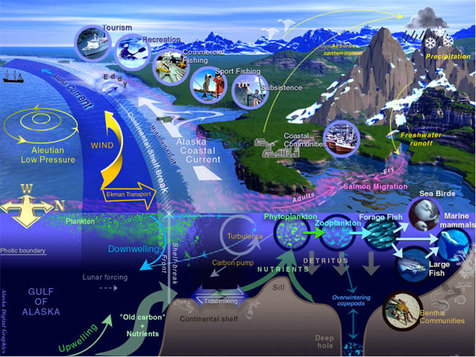
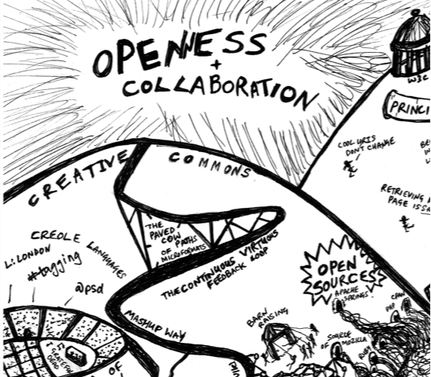

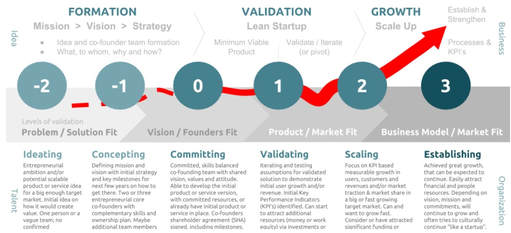



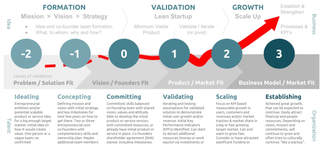
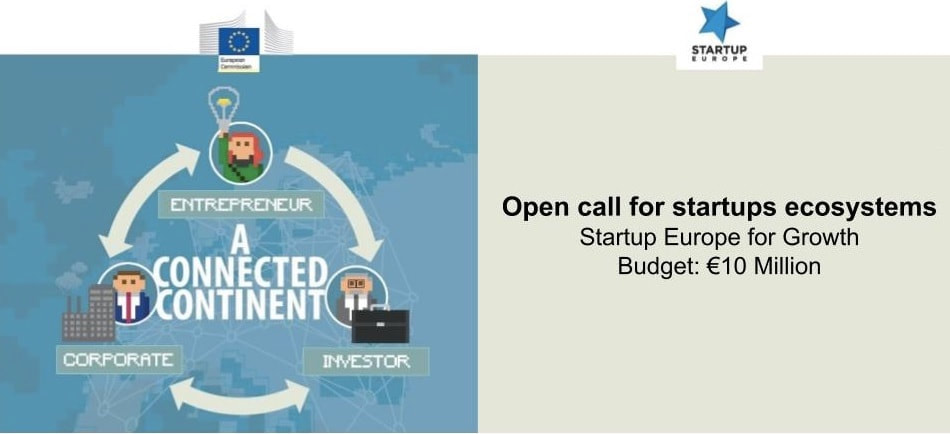
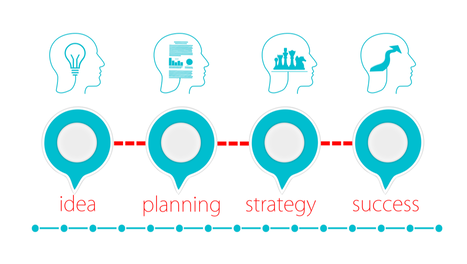
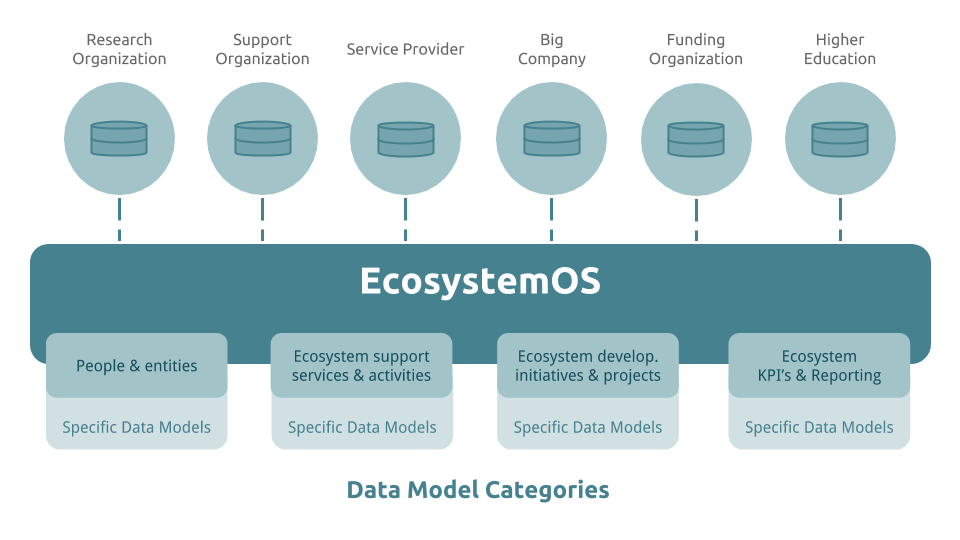



 RSS Feed
RSS Feed

